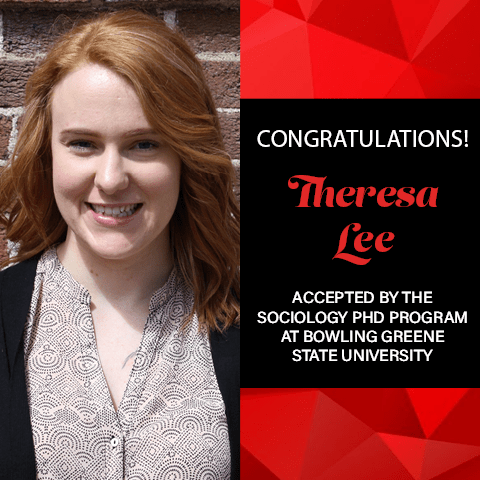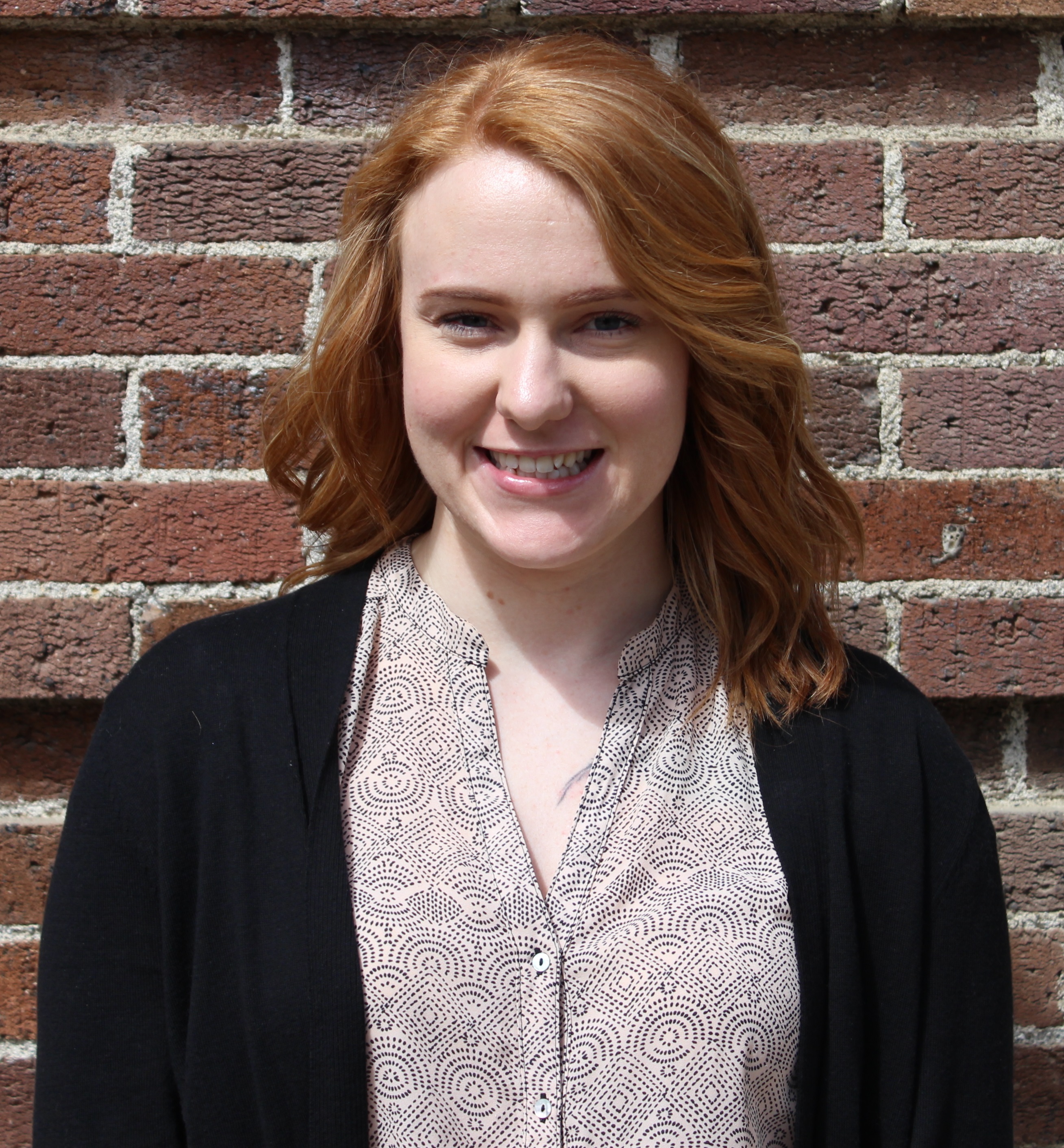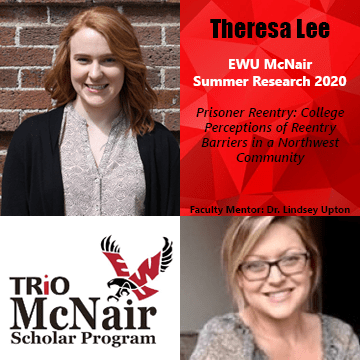Theresa Lee
Theresa Lee graduated from Eastern Washington University in 2021 with a Major in Criminal Justice, a second major in Psychology, and a minor in sociology. She is interested in studying reentry challenges faced by convicted offenders (see more on her research below). She presented a poster of her research at the American Society of Criminology (ASC) conference with the support of her mentor Dr. Lindsey Upton in the fall of 2019 as well as at the EWU Virtual Symposium in 2020. Theresa completed two summers of EWU McNair Research Internships.
For graduate school, she was accepted into the PhD Program in Sociology at the University of Hawai’i Manoa, the PhD Program in Criminology and Criminal Justice at the University of South Carolina, the Master’s Program in Criminology, Law and Justice at the University of Illinois at Chicago, the PhD Program in Sociology at the University of Wisconsin, Milwaukee, and the PhD Program in Sociology at Bowling Greene State University, with full funding, where she plans to attend in Fall 2021.
2019-2020 McNair Faculty Research Mentor: Dr. Lindsey Upton
Research Title: Prisoner Reentry: College Perceptions of Reentry Barriers in a Northwest Community
Abstract: The United States has experienced an enormous rise and fall in crime rates, while incarceration rates have continued to soar. One of the many pressing concerns about the era of mass incarceration, especially in times where decriminalization of drug offenses occurs, communities are faced with increases in returning inmates and resources needed for successful reentry. This study is focused on community perceptions of barriers faced regarding incarceration, prisoner reentry, and improving recidivism rates in communities. Qualitative data are collected from interviews and focus groups conducted in an Inland Northwest community, to shed light on the community’s perception of barriers to reentry that might interrupt successful reentry for inmates or that may be viewed as more helpful for inmates’ successful reentry. This research extends our understanding of community perceptions of barriers faced in interrupting the cycles of incarceration as well as provides an assessment and evaluation of what exists, what is needed, and what has worked in this community. The research has implications for local criminal justice reform efforts to better provide services and resources for returning inmates.

McNair Alum Illuminate the Graduate School Experience

Dr. Lindsey Upton: A Thoughtful, Engaged Mentor Makes a Difference in the Lives of First Generation Scholars
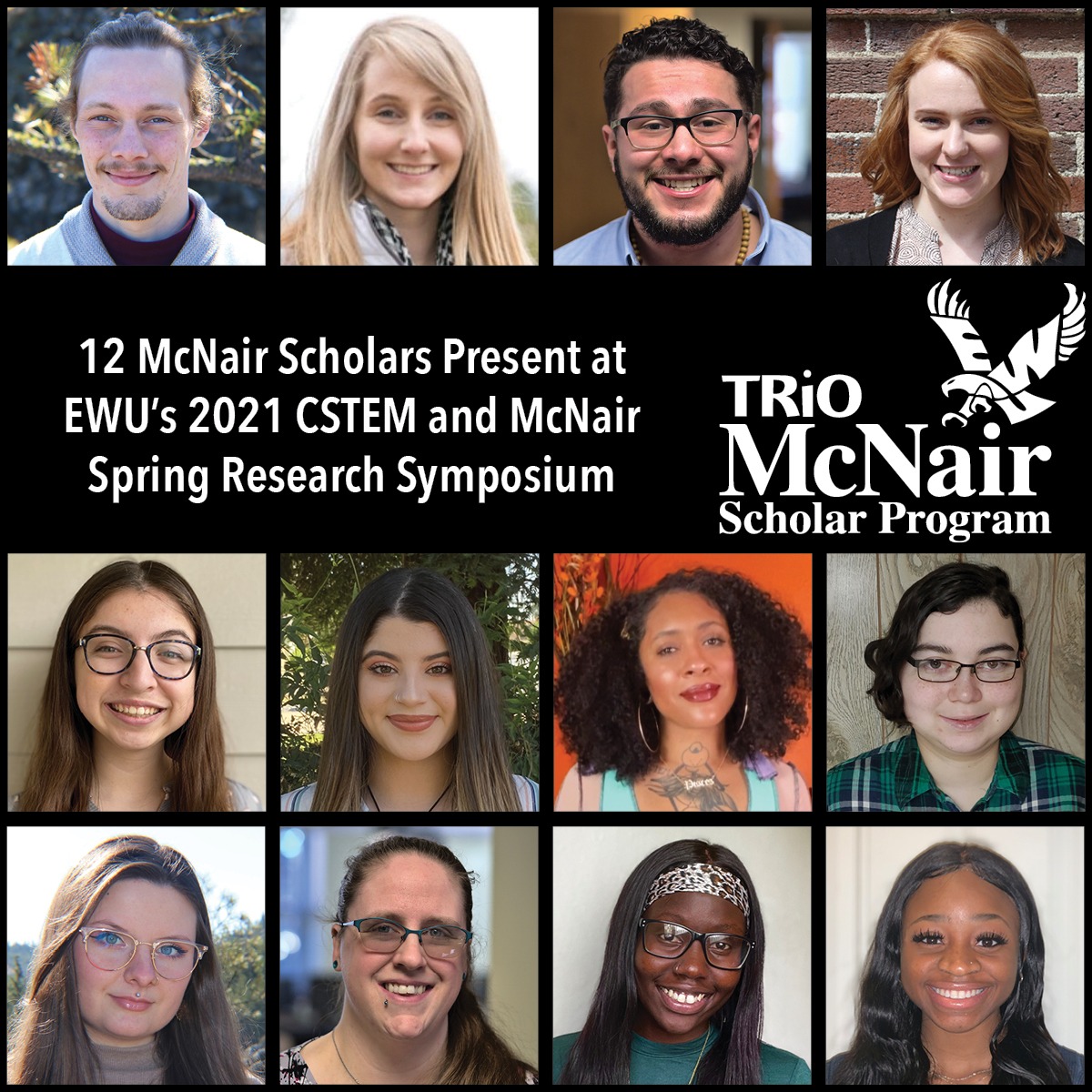
12 EWU McNair Scholars Present at EWU Virtual Symposium
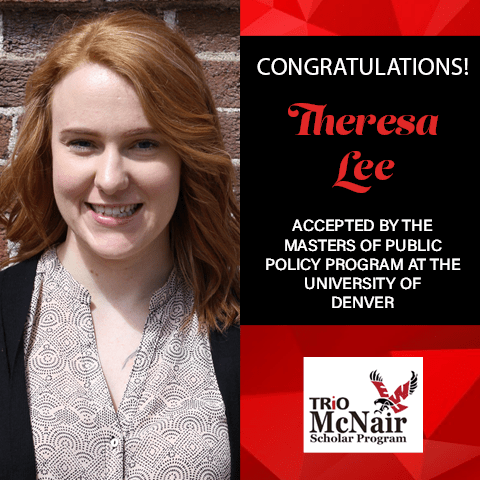
EWU McNair Scholar Theresa Lee Accepted by Sixth Graduate Program
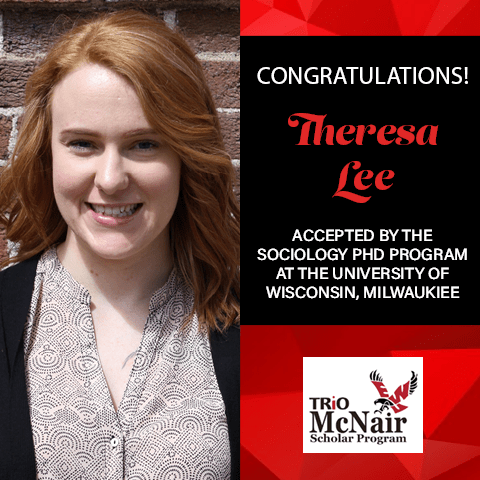
EWU McNair Scholar Theresa Lee Accepted by University of Wisconsin PhD Program
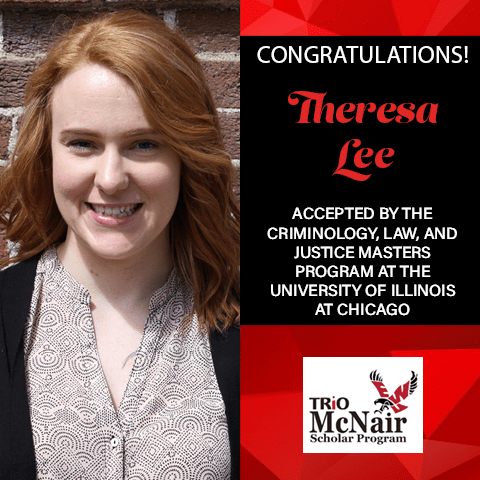
EWU McNair Scholar Theresa Lee Accepted by University of Illinois Masters Program
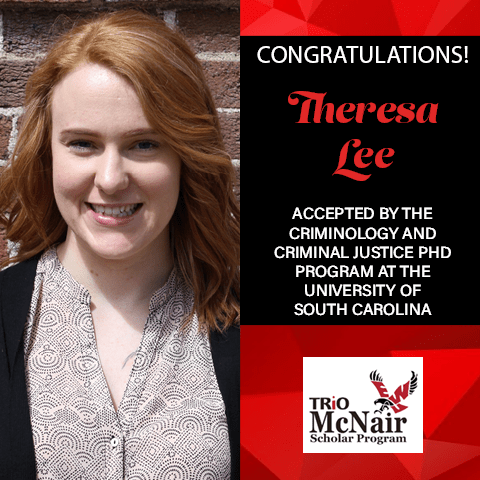
EWU McNair Scholar Theresa Lee Accepted by Criminology and Criminal Justice PhD Program
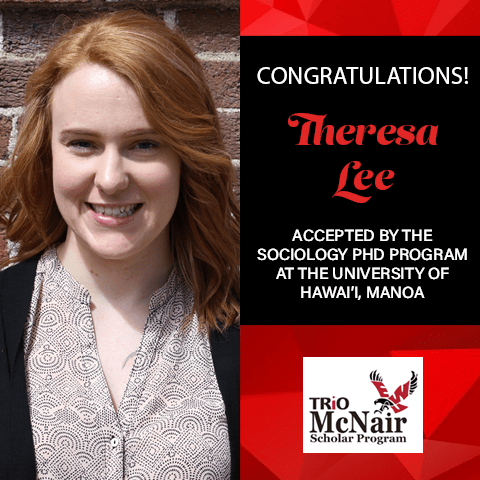
EWU McNair Scholar Theresa Lee Accepted to the Sociology PhD Program in UH Mānoa
